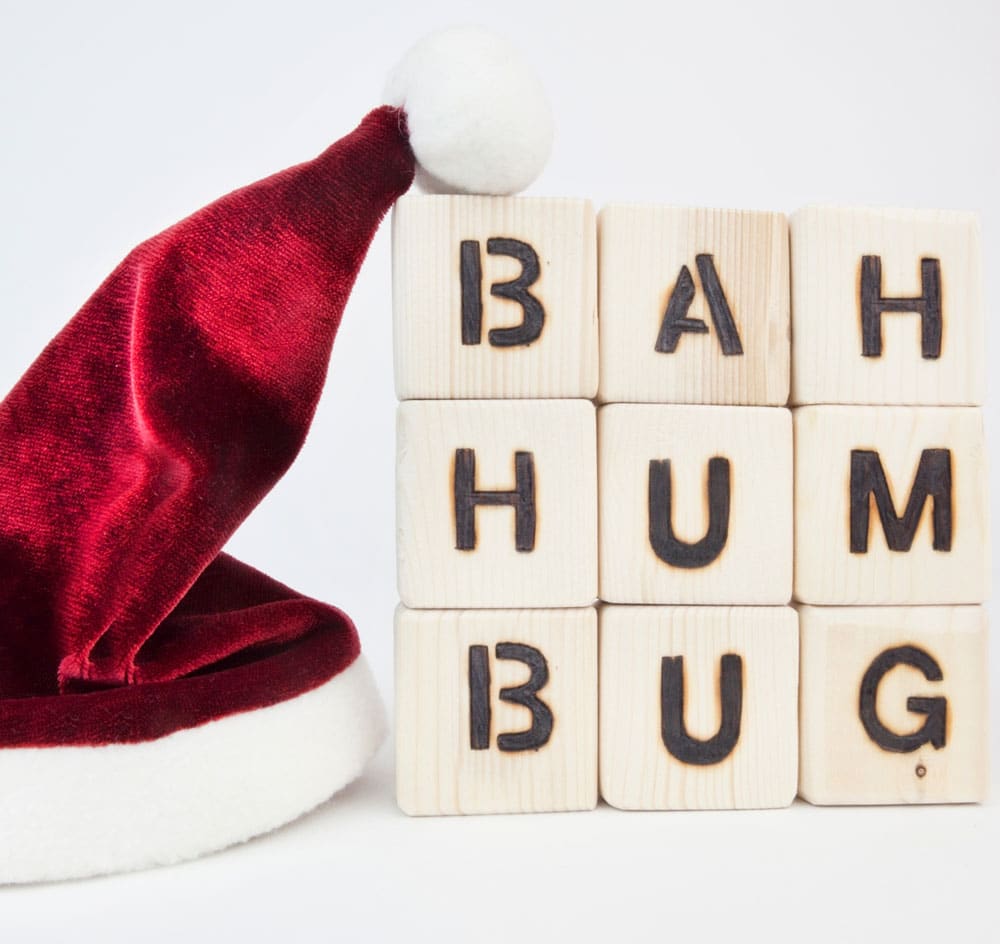By Wesley Gallagher
It’s the most wonderful time of the year. Parties for hosting, marshmallows for toasting … you know the drill. But for many of us, the holiday season is not the most wonderful time of the year. Sometimes, it can be the hardest. And for as much as we wish we could get into the holiday spirit, we find ourselves feeling more like a scrooge.
Why Are the Holidays So Hard for Some?
What is it about the holidays that makes many of us feel worse, instead of holly and jolly and full of cheer like everyone tells us we ought to be?
Well, as it turns out, the expectation to be merry is part of the problem. It’s hard enough to be struggling with something in your life. But when you’re struggling and everyone around you is telling you that you shouldn’t be, it can actually make you feel worse. You’re feeling down, but it’s the holidays, so you should be happy, and now you feel bad for feeling bad!
If you’re in recovery from alcohol or drug addiction, the holidays can be a triggering time. It’s important to know your triggers and avoid situations that may derail you.
The holidays can also tend to shine a spotlight on problems that may be easier to downplay during other times of the year. The season of gift-giving can be a stark reminder of your financial hardship. Parties on the calendar may highlight how your recent divorce has left you without a partner. A lack of invitations can make you feel like you’re the only one spending the holidays alone. A long-standing tradition may be a reminder of the loss of a loved one.
Mental Health, Recovery, and the Holidays
According to a survey from the National Alliance on Mental Illness (NAMI), 64% of people with mental illness say the holidays make their condition worse. Contributing factors include increased loneliness, financial hardship, too much pressure, and unrealistic expectations. All of these added burdens can serve to exacerbate symptoms of mental illness during the holiday season.
Even people without a diagnosed mental illness may experience something called the “holiday blues” this time of year. VeryWellMind.com describes the holiday blues as feelings of sadness that last throughout the holiday season, often brought on by increased demands and stress as well as heightened emotions. Signs of the holiday blues include the following:

- Changes in appetite or weight
- Fatigue or changes in sleep
- Irritability or depressed mood
- Difficulty concentrating
- Feelings of worthlessness or guilt
- Feeling worried or anxious
- Loss of pleasure in things you usually enjoy
Whether you have a mental illness or not, it’s important to look out for these signs and take action if you think you may be depressed.
If you’re in recovery from alcohol or drug addiction, the holidays can be a triggering time. Changes in routine, holiday parties, and stressful family gatherings are some of the biggest threats to recovery. It’s important to know your triggers and avoid situations that may derail you.
How to Survive the Season
If you’re one of the many people who dread this season, it’s OK to embrace your inner Scrooge and take the pressure off yourself to get into the holiday spirit. It’s much more important to take care of your own mental and emotional health. To make this holiday season more tolerable, NAMI offers the following tips:
- Ignore the “shoulds”
It’s easy to think about how the holidays used to be when you were growing up or how your next-door neighbor is spending their season, but unrealistic expectations will only set you up for failure. So, quit comparing and remember that no one’s life, or holiday season, is perfect.
- Set reasonable expectations
In this season of giving, remember that you still need to set healthy boundaries for yourself. It’s OK to say “no” to a party or to the extravagant present your sister wants you to find for your niece.
In this season of giving, remember that you still need to set healthy boundaries for yourself. It’s OK to say “no” to a party or to the extravagant present your sister wants you to find for your niece.
- Don’t be a superhero
Spending time with family can be complicated, especially around the holidays. It’s tempting to try to fix negative family dynamics, but now’s not the time. It’s better to limit exposure to toxic relationships and prepare yourself for Uncle Bill to bring up politics during dinner, rather than expect him to finally get that no one wants to hear his opinion on how you should’ve voted.
- Embrace the season of giving
Volunteering can be a great way to get outside yourself during this stressful time and enjoy the opportunity to make an impact on other people’s lives. Fortunately, there are ample opportunities this time of year! Plus, it’s a great way to get out of the house and around other people if you aren’t sure how to deal with loneliness during the holidays.
- Self-care is still important
Don’t let yourself get so swept away in the season that you forget to take care of yourself. Make sure you get breaks from the hustle and bustle, and don’t forget to exercise and eat well to help keep your spirits up and your body feeling good.
If you have a mental illness or are in recovery, make sure you keep up with your regular routine of therapy or meetings as well as the other habits that keep you on track. Don’t let the holidays derail your recovery; with a bit of preparation and intentionality, you can make it through — and maybe even enjoy — the season.
If you find yourself struggling more than you can handle, we at The Meadows can help. Let us get you back on track by giving you the tools you need to enjoy life again. Reach out today to learn more.

